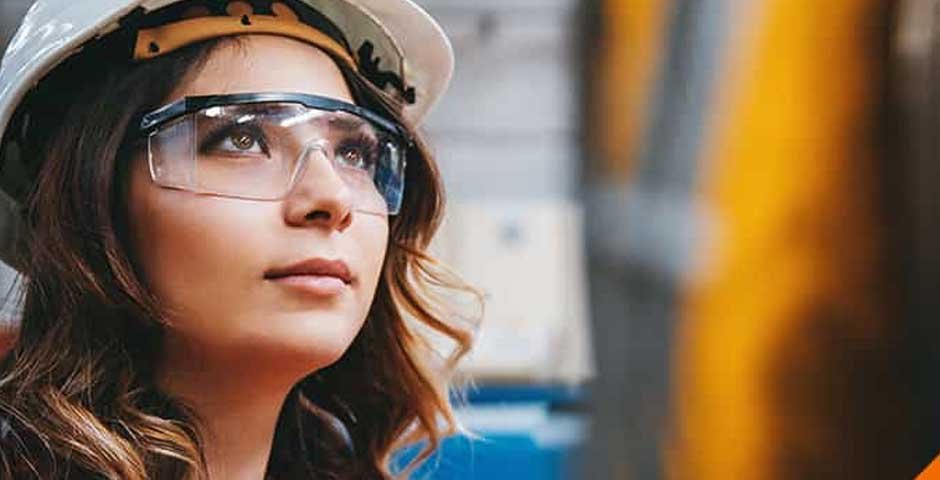Have you ever stopped to wonder why safety glasses are such a big deal? Why is it frequently emphasized in many workplaces and certain activities? Well, you’re about to uncover the mystery behind this essential protective gear. Your eyes are precious, and their protection is non-negotiable. That’s where correct safety eyewear comes into play. But what exactly are safety glasses? What are its benefits, and why is it essential to wear safety eyewear? Stay tuned as we delve into this enlightening topic.
What are Safety Glasses?
Safety glasses, a key form of personal protective equipment, safeguard our eyes from potential hazards like flying debris, harsh chemicals, or harmful radiation. They’re typically built with impact-resistant materials and might boast additional features such as side shields or anti-glare coatings. From laboratories and factories to construction sites, these glasses play a crucial role wherever there’s a risk to eye safety. It’s important to remember, though, that for optimal protection, they should be used in line with the appropriate safety guidelines and standards.
What are the Benefits of Safety Eyewear?
Safety glasses or protective eyewear are designed to protect your eyes from hazards. These hazards can be physical, chemical, or biological. It’s just like how you would wear a helmet when riding a bike or a life jacket when sailing.
Let’s break down these hazards and have a look at some benefits of safety eyewear.
1. Protection Against Physical Hazards
Physical hazards are the most common and perhaps the most apparent hazards to the eyes. They include dust, projectiles, metal pieces, wood chips, and more. These are especially common in workplaces such as construction sites, woodworking shops, and manufacturing plants. Imagine a tiny metal piece flying into your eye. Ouch! That would be painful, right? Safety glasses form a protective barrier between your delicate eyes and these potential hazards, ensuring you stay safe as you work or engage in specific activities.
2. Protection Against Chemical Hazards
Chemical hazards? Yes, you heard that right! Certain jobs expose workers to harmful chemicals. These could be in the form of splashes, fumes, or vapors. Think of laboratory workers, cleaners using strong detergents, or industrial workers dealing with various chemicals. In such cases, safety glasses are not just a precaution; it’s a necessity. It protects your eyes from these chemicals, ensuring they don’t cause irritation, burns, or more severe eye injuries.
3. Protection Against Biological Hazards
The third category of hazards is biological hazards. These include bacteria, viruses, and other infectious materials, which can pose serious threats to your eyes. These are particularly concerning in healthcare settings where workers deal with patients or samples containing infectious agents. Here, safety glasses act as a safeguard, preventing these biological threats from entering your eyes.
Types of Safety Glasses
Just like shoes, there are no one-size-fits-all safety glasses. Different situations call for different types of safety glasses. Let’s take a closer look!
1. Safety Glasses
These are the most common types of safety glasses. Safety glasses look like regular glasses, but they’re much stronger and designed to resist impact. They protect against dust, flying particles, and minor impacts. They’re ideal for jobs like carpentry, electrical work, and basic laboratory tasks.
2. Prescription Safety Glasses
For those who already wear glasses for vision correction, don’t fret! Prescription safety glasses are available. They combine the protective features of safety glasses with the corrective features of prescription glasses. Now, you don’t have to choose between seeing clearly and staying safe!
3. Goggles
Goggles provide a higher level of protection as they cover the entire eye area. They’re used when there’s a risk of splashing chemicals or flying debris. This makes them perfect for tasks like grinding, chemical handling, or high-dust activities.
4. Face Shields and Welding Helmets
For tasks like grinding, welding, or dealing with harmful radiation, face shields or welding helmets are used. These provide the most comprehensive coverage, protecting your entire face, not just your eyes, from potential hazards.
Who Needs Safety Glasses and What is the Safety Eyewear Purpose?
The need for safety glasses isn’t confined to specific professions. Anyone exposed to eye hazards should make use of safety glasses. This includes workers in industries like construction, manufacturing, healthcare, scientific research, and even certain fields of artistry. But it’s not limited to workplaces. You might need safety glasses for certain hobbies like woodworking, metalworking, or even sports that involve fast-moving objects like squash or shooting.
How to Choose the Right Safety Glasses
Choosing the right safety glasses is not as simple as picking the first pair you see on the shelf. Here’s what you need to consider:
- Type of Hazard: Consider the hazards you’re exposed to. Are they physical, chemical, or biological? Different hazards require different types of protection.
- Comfort and Fit: If your eyewear is uncomfortable or doesn’t fit well, you’re less likely to wear it, which defeats its purpose. Choose a pair that fits well and feels comfortable.
- Prescription Needs: If you use corrective glasses, opt for prescription safety glasses or goggles that can accommodate your glasses.
- Safety Standards:Look for eyewear that complies with national or international safety standards. This ensures the eyewear has been tested and proven to provide effective protection.
Wrapping Up
In a nutshell, safety eyewear is your best defense against eye hazards. It’s not just about avoiding injuries; it’s also about improving performance, saving costs, and meeting legal requirements. So whether you’re a professional in a high-risk industry or a hobbyist with a passion for woodworking, remember this: your eyes are irreplaceable. Protect them by wearing the right safety eyewear.






